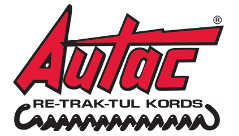Extension cords are essential tools for many households, offices, and industrial settings, providing the flexibility to power devices and appliances in areas where electrical outlets are not conveniently located. One specific type of extension cord that is frequently discussed is the “bend extension cord.” This term typically refers to extension cords designed to be more flexible and maneuverable, allowing them to bend easily without damaging the wires inside. This article will delve into what bend extension cords are, their benefits, and how to use them safely.
What is a Bend Extension Cord?
A bend extension cord is designed to be more flexible than standard extension cords, making it easier to route around obstacles and fit into tight spaces. These cords are often constructed with materials that allow them to bend and flex without compromising the integrity of the internal wires. The flexibility is achieved through the use of special insulation and jacketing materials, as well as the design of the wire itself.
Benefits of Bend Extension Cords
1. Flexibility and Maneuverability
The primary advantage of bend extension cords is their ability to bend and twist without breaking or damaging the internal wiring. This makes them ideal for situations where the cord needs to navigate around furniture, corners, or other obstacles.
2. Durability
Bend extension cords are often made from high-quality materials that provide enhanced durability. They can withstand frequent bending and flexing, making them more resistant to wear and tear compared to standard extension cords.
3. Safety
With their robust construction, bend extension cords reduce the risk of internal wire damage that can lead to electrical shorts or fires. Their design helps maintain the integrity of the cord even when subjected to frequent movement.
4. Convenience
These cords are particularly useful in environments where flexibility is key, such as workshops, garages, or outdoor settings. They can be easily coiled and stored without kinking or tangling, providing greater convenience for users.
Applications of Bend Extension Cords
1. Home Use
In homes, bend extension cords are perfect for connecting appliances, electronics, and lighting fixtures in rooms where outlets are not conveniently placed. Their flexibility makes them easy to hide behind furniture or along walls.
2. Workshops and Garages
For DIY enthusiasts and professionals, bend extension cords offer the durability and flexibility needed in workshops and garages. They can power tools and equipment without getting in the way or becoming damaged from frequent movement.
3. Outdoor Activities
Bend extension cords are also ideal for outdoor use, such as gardening, outdoor lighting, and powering equipment for events. Their robust design ensures they can withstand the elements and physical stress from outdoor activities.
4. Office Environments
In offices, these cords can help manage the power needs of multiple devices, such as computers, printers, and other office equipment. Their flexibility allows for neat and safe cable management, reducing tripping hazards.
Choosing the Right Bend Extension Cord
Selecting the appropriate bend extension cord for your needs involves considering several factors to ensure it meets the requirements of your specific application. Here are some key considerations to help you make an informed decision:
1. Length of the Cord
The length of the extension cord is crucial. Measure the distance between the power source and the device you need to power to determine the minimum length required. While longer cords provide more flexibility, they also have a higher resistance, which can lead to voltage drops if the length is excessive.
2. Gauge of the Wire
The wire gauge determines the amount of electrical current the cord can safely carry. Extension cords come in various gauges, with lower numbers indicating thicker wires and higher capacity. For heavy-duty applications, such as powering high-wattage tools, choose a lower gauge (e.g., 12 or 14). For lighter loads, a higher gauge (e.g., 16 or 18) might suffice.
3. Ampacity Rating
Check the ampacity rating of the extension cord, which indicates the maximum amount of current it can safely handle. Ensure the cord’s rating matches or exceeds the requirements of the devices you plan to connect.
4. Type of Insulation
Consider the type of insulation used in the cord. For indoor use, standard insulation is typically sufficient. For outdoor or industrial use, look for cords with heavy-duty insulation that can withstand exposure to the elements, chemicals, and physical wear.
5. Plug Type
Ensure the extension cord has the right type of plug for your needs. For grounded devices, use cords with three-pronged plugs. Some bend extension cords also come with right-angle plugs, which can be useful in tight spaces or behind furniture.
6. Special Features
Some bend extension cords come with additional features, such as multiple outlets, built-in circuit breakers, or lighted ends that indicate power flow. Consider these features based on your specific needs and convenience.
Maintaining Bend Extension Cords
Proper maintenance of bend extension cords is essential to ensure their longevity and safety. Here are some maintenance tips:
1. Regular Inspections
Periodically inspect the cord for any signs of wear or damage. Look for cracks, cuts, or frayed insulation, and check the plug ends for any signs of overheating or deformation.
2. Clean Properly
Keep the extension cord clean and free from dirt, dust, and moisture. Wipe it down with a dry cloth after use, especially if it has been used outdoors.
3. Avoid Sharp Bends
While bend extension cords are designed to be flexible, avoid creating sharp bends or kinks, as these can damage the internal wiring over time. Coil the cord loosely when storing.
4. Store Correctly
Store the cord in a cool, dry place away from direct sunlight and heat sources. Use a cord reel or hanger to keep it organized and prevent tangling.
5. Avoid Overheating
Do not cover the extension cord with rugs, carpets, or other materials that could trap heat. Overheating can damage the insulation and increase the risk of electrical fires.
Conclusion!!
Bend extension cords offer a flexible, durable, and convenient solution for powering devices in various settings. Their ability to bend and flex without compromising safety makes them an excellent choice for both home and professional use. By following proper safety guidelines, you can ensure the effective and safe use of bend extension cords in any environment. Whether you need to navigate around tight corners in your home or require a reliable power source in your workshop, bend extension cords provide the versatility and reliability you need.




Recent Comments